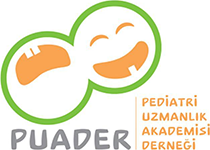Ethical Rules and Publication Policy
Pediatric Academic Case Reports undertakes to apply publication ethics rules and takes all possible measures to prevent any publication misconduct.
Case presentations involving human subjects are based on compliance with the principles of the Declaration of Helsinki. Furthermore, articles reporting the results of studies using human material must include an “Informed Consent” statement confirming that all procedures applied to the participants were explained and their consent obtained.
Authors must cite the sources used in writing the article in accordance with ethical principles. Any similarity between the article and another study without reference is considered plagiarism. Articles submitted to the journal are scanned using similarity detection software at any stage during the evaluation process. If plagiarism is detected, it is considered a serious violation, regardless of whether it was intentional or not. The expression of the results of the study is entirely the responsibility of the author, and it is important that data from different studies used for discussion are correctly cited.
If plagiarism is detected or suspected in a submitted study, the Journal Editorial Board will act in accordance with COPE rules.
Only authors who have contributed to the article should be named.
Pediatric Academic Case Reports is an international peer-reviewed journal published by the Academy of Paediatric Specialists. It is published three times a year (January, May, September).
Pediatric Academic Case Reports is a free open access journal. Authors are not charged submission or article fees for articles submitted to the journal.
Articles submitted by authors for publication in Pediatric Academic Case Reports must not have been published elsewhere or submitted to another journal for publication at the same time. After a preliminary review of the form and content of articles submitted to the journal, a double-blind peer review process is initiated, and the articles are sent to at least two reviewers from different centres. Articles that do not meet the format requirements or are not relevant to the journal's subject matter are returned to the authors after preliminary review without being sent to reviewers.
Conflict of Interest Policy
All authors, reviewers, and editors must disclose any potential conflicts of interest, whether financial or personal, that could influence their objectivity. If any conflict is identified, it must be declared in the manuscript and will be evaluated by the Editorial Board.
Open Access Policy
Pediatric Academic Case Reports provides immediate open access to its content under the terms of the Creative Commons Attribution-NonCommercial 4.0 International License (CC BY-NC 4.0). Readers are free to read, download, copy, distribute, and use the content for non-commercial purposes with appropriate citation.
Archiving and Digital Preservation Policy
Pediatric Academic Case Reports ensures the long-term preservation and accessibility of all published content.
The journal archives each issue and article on secure institutional servers and maintains additional off-site backups.
In addition, the website content is periodically archived through the Internet Archive (Wayback Machine) to guarantee permanent public access, even in the event of technical failures or website changes.
Complaints and Appeals
Authors, reviewers, or readers may submit complaints or appeals regarding editorial decisions, peer review, or publication ethics by emailing editor@pacrjournal.org. All concerns will be handled confidentially and in accordance with COPE guidelines.
Data Availability Policy
PACR encourages transparency and reproducibility of research. Authors are encouraged to make anonymized data available upon reasonable request to the corresponding author.
Funding and Revenue Disclosure
Pediatric Academic Case Reports is published and financially supported by the Academy of Paediatric Specialists. The journal does not charge submission or publication fees and does not receive commercial advertising revenue.

